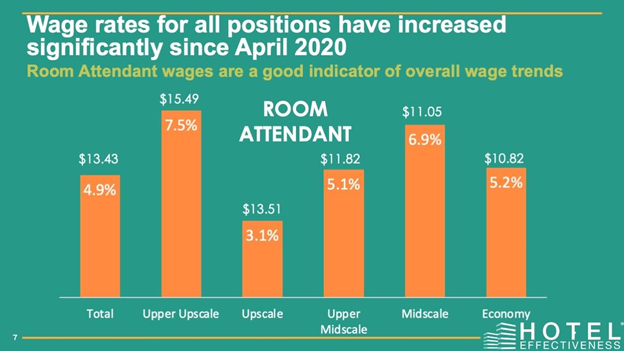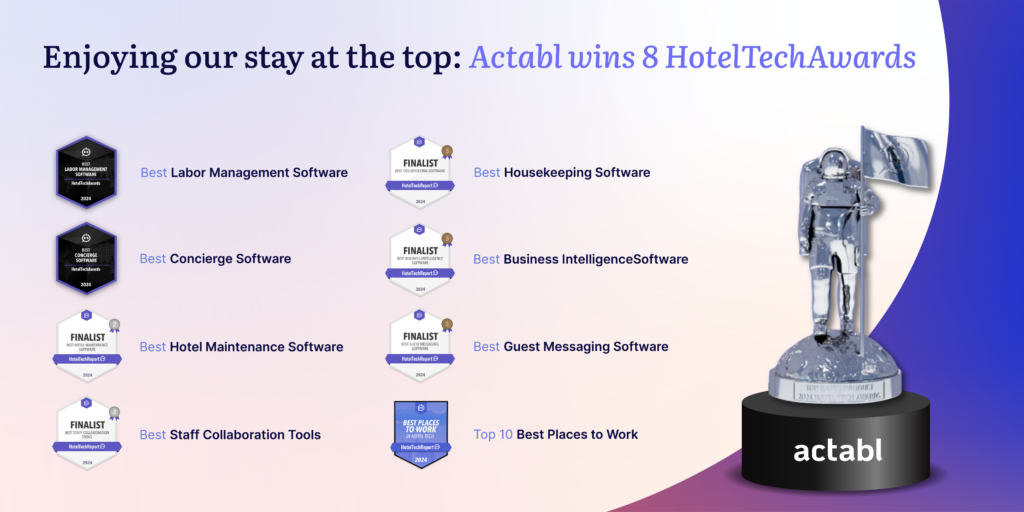
Stop Oversimplifying the Complex Labor Shortage Affecting the Hotel Industry
There’s no debating the fact that the cross-country labor shortage continues as we’re re-emerging into a post-pandemic world. Recent suggestions state that capitalism has the answer, as states start putting an end to jobless payments. Is this the answer? Or are industries – specifically the hotel industry – oversimplifying the problem?
After the worst year in the history of the hospitality industry, hotels anticipated a partial return of guests in 2021. Then, in Spring, an unforeseen occupancy surge erupted. Hoteliers were not prepared. It is true that hotels are scrambling for workers today, but is the answer as simple as raising wages? Consider that hotel wages for new hires already increased by more than 20% in the past 30 days. Current pay rates for housekeeping, front desk, and maintenance associates are at the highest levels in history. In the hottest leisure destinations, hoteliers are offering $20 per hour or more for positions that paid less than half that amount just one year ago. Despite this, hotels struggle to attract and recruit candidates for these critical roles.

Source: Hotel Effectiveness historical wage data, >5,000 hotels in the U.S.
Other political pundits suggest that COVID-19 relief payments are the problem – cut the relief, and the workers will take the jobs. Soon enough, we will see if this is the solution. However, hospitality management needs to be prepared when this turns out to be a gross oversimplification of a wide-ranging industry issue. Unemployment compensation and relief are factors in this market, but this is less important than other challenges – some short-term, others systemic.
We failed to predict the Spring occupancy surge.
Hotels know how to plan for seasonal increases in guest volume. However, in the past eight weeks, returning travelers far surpassed even the most optimistic projections. This swell of guests, before the Summer season, happened without warning. Pent-up demand plus COVID optimism drove last-minute bookings at a pace that has never occurred in the industry – ever. Instead of three months to plan for a seasonal surge, hotels had five days.
The experienced hospitality workforce is now unavailable.
When the world shut down in 2020, hotels in the U.S. laid off approximately 6.2 million employees. As some states opened up, the industry saw a third of these jobs recovered last Summer, though the ongoing pandemic stalled any hope of a quick bounce-back. As a result, staffing levels remained around 50% at the start of 2021. Experienced workers who were not re-hired last year have moved on to jobs in other industries. Most are not expected to return to hotels. While unemployment remains high, most of the available workers have no experience in hospitality and very little interest in the jobs that suddenly became open. Long-term hotel workers understand the importance of their roles and dedicate themselves to the industry due to their belief in this mission. Non-hotel employee prospects do not share this passion – to them, it is just a job. With alternative opportunities in all directions, the employment offered by hotels was less appealing. This lack of interest in the industry came despite competitive wages, sign-on bonuses, and other efforts to attract recruits.
Overwhelmed managers lack time for effective hiring.
Hotel managers have always been versatile. Filling in for absent team members is part of the job. Over the past 12 months, hotel general managers report spending as much as half of their time cleaning rooms, checking in guests, and performing maintenance while also managing the team. Thanks to the rapid surge in guest volume, the pressure to fill in for missing staff increased. Hotel managers simply did not have the time to recruit, interview, hire and train new workers as owners demanded capitalization on much-needed revenue creation. There is understandable reluctance to consider turning guests away because of short-staffing. Instead, managers did their best to manage, contribute AND recruit – and the recruiting was the hardest of these things.
So, where does the hotel industry go from here? There are ways for the industry to rebound in order to immediately apply solutions that will get us through the predicted busiest travel summer of all time. In addition, now is the time to analyze and review the immediate effects of the pandemic so that we can institute long-term systemic solutions.
- Hoteliers need to invest in recruitment training for managers immediately. Large, multi-unit hotel operators and owners should expand their central staffing and H.R. functions with nimble, experienced professionals who can respond to unforecasted demand and fill open jobs quickly.
- Right now, this Summer, the hotel industry needs to focus on marketing the career potential and the core purpose of our industry to build interest and appeal outside of our current employee base. Our work matters, and we need to instill a sense of purpose in our current and potential workforce.
- Finally, we will learn and be better prepared the next time the world is shut down for a pandemic or similar tragedy. Hotels need to embrace predictive staffing models now, addressing volatile demand while setting (and measuring) productivity standards for their workers.
Finger-pointing is easy, but it is unproductive. The gift of COVID19 is that we have learned a lot about problems that never existed in the past. Our industry will change forever due to the pandemic. Still, with a focus on the right things (instead of the easy answers), we can emerge stronger than ever – for the benefit of workers, managers, and hotel owners.

Source: Hotel Effectiveness PerfectLabor™ data including >4,000 hotels in the U.S.







